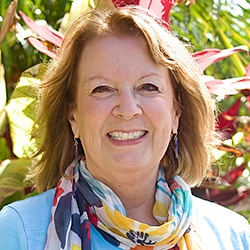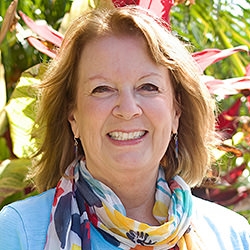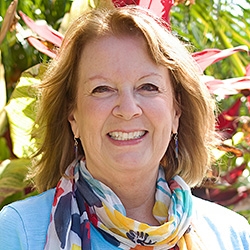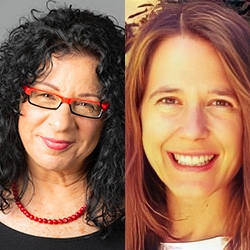
Search Results: interpretation
-
Ask the Trainer: "I understand that I'm not responsible for someone else's feelings, but my girlfriend doesn't. Do you have ideas for how I could get her to understand this concept?"
-
Inbal answers a parent's question about praise and offers a perspective on how praise translates into the NVC framework.
-
There are endless ways to meet our needs. Conflict occurs when we argue over strategies. When we actively value everyone’s needs, we foster openness and deeper connection in our relationships. Today look for opportunities to focus on needs in order to resolve an issue with at least one person.
-
Building your body and mind awareness can help you better regulate/calm your emotions. Regular self-empathy will help you better regulate your emotions as well as increase your body and mind awareness. If you are not aware of amygdala activation (fight/flight/freeze response), you will react instead of responding with choice. Use this eight-step process to develop your self-empathy/regulation skills.
-
Why is it so difficult to not take things personally? It's because everything reinforces the sense that whatever is being said is indeed about us – both from without and from within. However, we can get better at not taking things personally with a practice of shifting our focus by being open to multiple interpretations, understanding that our reaction is about our own need, and noticing how the other person’s words, no matter how they sound to us, are an expression of their needs. We can then be more present and available to navigate the situation.
-
Anger can alert us that a need may be threatened. When anger lives in someone as a well-worn habit, it arises from a place of dissociation from one’s heart and is entangled with misinterpretations, a deep sense of threat, a history of pain, and social conditioning that isn’t life-serving. Read on for how intention, mindfulness, and specific actions can change that habit.
-
Ask the Trainer: "Can you share stories of transforming group conflict, or is NVC strictly intended for 'one-on-one' work?"
-
NVC practice is based on several key assumptions and intentions. When we live based on these assumptions and intentions, self-connection and connection with others become increasingly possible and easy, helping us contribute to a world where everyone’s needs are attended to peacefully.
-
It is the first day of 2024 and I am filled with gratitude and awe. Yesterday, I celebrated my 9th year of hosting my annual New Year’s Peace Meditation. We had over 800 people register from many, many different countries and the meditation was interpreted into 4 different languages. It was incredibly moving, connecting, and hopeful for me!
-
- Gain a new perspective on the value of living and embodying peace
- Take a moment to reflect on 2024 and welcome 2025
- Join like-minds to send compassionate energy around the world
- Give yourself some much-needed space for inner renewal
-
- Uncover the expansive possibilities of Nonviolent Communication in growing compassion for a more empathic world
- Engage with 17 global trainers on 17+ unique topics
- Connect with an international audience from novices to experts
- Immerse yourself in a festival of learning, fun, and community
-
Listen to the Universe is a fun group exercise to explore how we focus our attention and interpret what we experience.
-
Trainer Tip: Mary offers 3 foundational tips for making requests: positivity, specificity and doability.
-
- Tune into your self-dialogue with a compassion that supports loving presence
- Shift limiting beliefs about your parenting patterns so you can choose consciously
- Transform frustration, confusion, or guilt into constructive, honest discussions
- Foster your ability to say yes and no in a way that supports your natural limits














